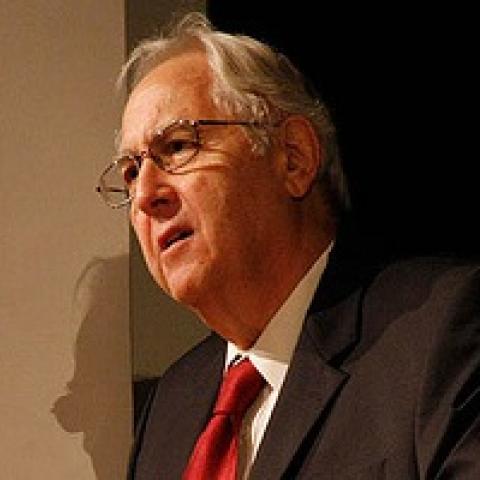Last night, “In Performance at The White House” featured a tribute called “A Celebration of Music from the Civil Rights Movement.” You can watch it or download it here, or wait to view an edited version tomorrow night on your local PBS station.
The program featured such stars as Natalie Cole, Jennifer Hudson, Joan Baez, Yolanda Adams, John Mellancamp, The Blind Boys of Alabama, Bernice Reagon and the SNCC Freedom Singers (at least three of them), Smokey Robinson and Bob Dylan. The intent was to have a program that during Black History month, featured music that inspired and reflected the Civil Rights Movement of the 1960’s.
There were of course some good performances. After all, these were largely accomplished major artists who performed. Smokey Robinson did a beautiful version of Dion DeMucci’s “Abraham, Martin and John,” Yolanda Adams has a great voice, and Jennifer Hudson performed a duet with Robinson. Yet, the entire event, as a concert, led me to a conclusion I suspect is quite different than the intent of those who put it together.
For those of us who lived through those dramatic times, it was as if we heard not a concert of a living , vital music, but a museum piece of performance artists singing songs that once had meaning, but now are relics of a bygone era. It was similar to the feeling shared by those leftists who listen to “The Songs of the Abraham Lincoln Brigade” and try to recall their emotions in those heady days of the 30’s, when they participated in what they thought was the great anti-fascist fight.
John Mellancamp, after a rather incoherent rant about an incident when he played in a band when he was 14 years old, sang “Keep Your Eyes on the Prize,” the Movement’s version of “Keep Your Hand on the Plow.” His singing was bland and not inspirational, although, the unnamed slide guitarist accompanying him played sensational guitar which made the song work.
The music had no spirit. Bernice Johnson Reagon seemed to notice that when she stopped the performance and told the audience, “you’re supposed to sing along,” and quipped that for all they know, they might need the song again. She was singing “Ain’t Nobody Goin’ To Turn Me Round,” with versus about “Chief Pritchett isn’t goin’to turn me round,” etc. But the days of chief Pritchett and Sheriff Bull Connor are long gone, and the Southern towns that were once ruled by the strict segregationist code with all white representatives now have black mayors and councilmen and state assemblymen.
The Civil Rights movement is not only over, but it is so for a reason. Its major aims, desegregation and recognized rights for black Americans, have been realized. It was one thing to listen to the SNCC Freedom Singers in the early 1960’s, when one immediately recognized the courage they showed and the power of the lyrics, as marchers were turned back at the Pettis bridge in Alabama, as Martin Luther King Jr., stopped them to avoid what would have been major bloodshed inflicted by police waiting for them had they marched on the state capitol.
Almost half a century later, hearing Joan Baez sing (badly, as it turned out) “We Shall Overcome” did nothing for me, as it did for anyone who heard it sung at the height of the events decades ago. Then there was Bob Dylan, who chose “The Times They Are a-Changin’,” played on acoustic guitar with accompanying piano and stand-up bass played by Tony Garnier. For Dylan’s loyal fans, like Sean Curnyn, his performance was elegiac. “I think it was an absolutely tremendous, epic, genuinely haunting and beautiful performance,” Curnyn writes.
I beg to differ. To me, his performance sounded like a dirge. The song was slowed down, the lyrics unlike most of his song specific to the time in which he wrote it, and today, it sounds like he wanted to choose something from that era—-which has little resonance for today. He seemed uncomfortable on stage, waited as if he was about to do another song, and then shrugged his shoulder and walked off, evidently from instructions from one of the stage managers.
I fully expected the concert to end with the assembled artists singing Dylan’s “Blowin’ In the Wind,” but instead, they chose the “Negro National Anthem,” or “Life Every Voice and Sing,” which it is obvious most of the artists on stage had never heard or simply did not know the lyrics. And while everyone in the concert was on stage, Dylan was noticeably absent. I suspect he either was insulted or annoyed about not being able to perform another song, as it looked like he was about to do, or simply did not want to join the others for some private reason.
And where, I wonder, were some of the artists who sang at the time, and went to Mississippi in 1963 with the singer’s caravan, put together by Bob Cohen and that included Dylan and Pete Seeger? Morgan Freeman, who was MC, at one point mentioned the folksinger Guy Carawan, the man most responsible for making “We Shall Overcome” the Movement’s most well known anthem. Most people never have heard of him, and must wonder who he is and why Freeman even mentioned his name. But since he was talked about, why did they not invite him to participate? Again, they obviously wanted big name stars. Reagon and the small version of the Freedom Singers stood alone as the only real authentic Movement figures who participated.
So, if you want nostalgia, or cannot miss this concert, watch the edited concert. My advice is to skip it. Individual artists you want to see will quickly have their performances posted on You Tube.


















